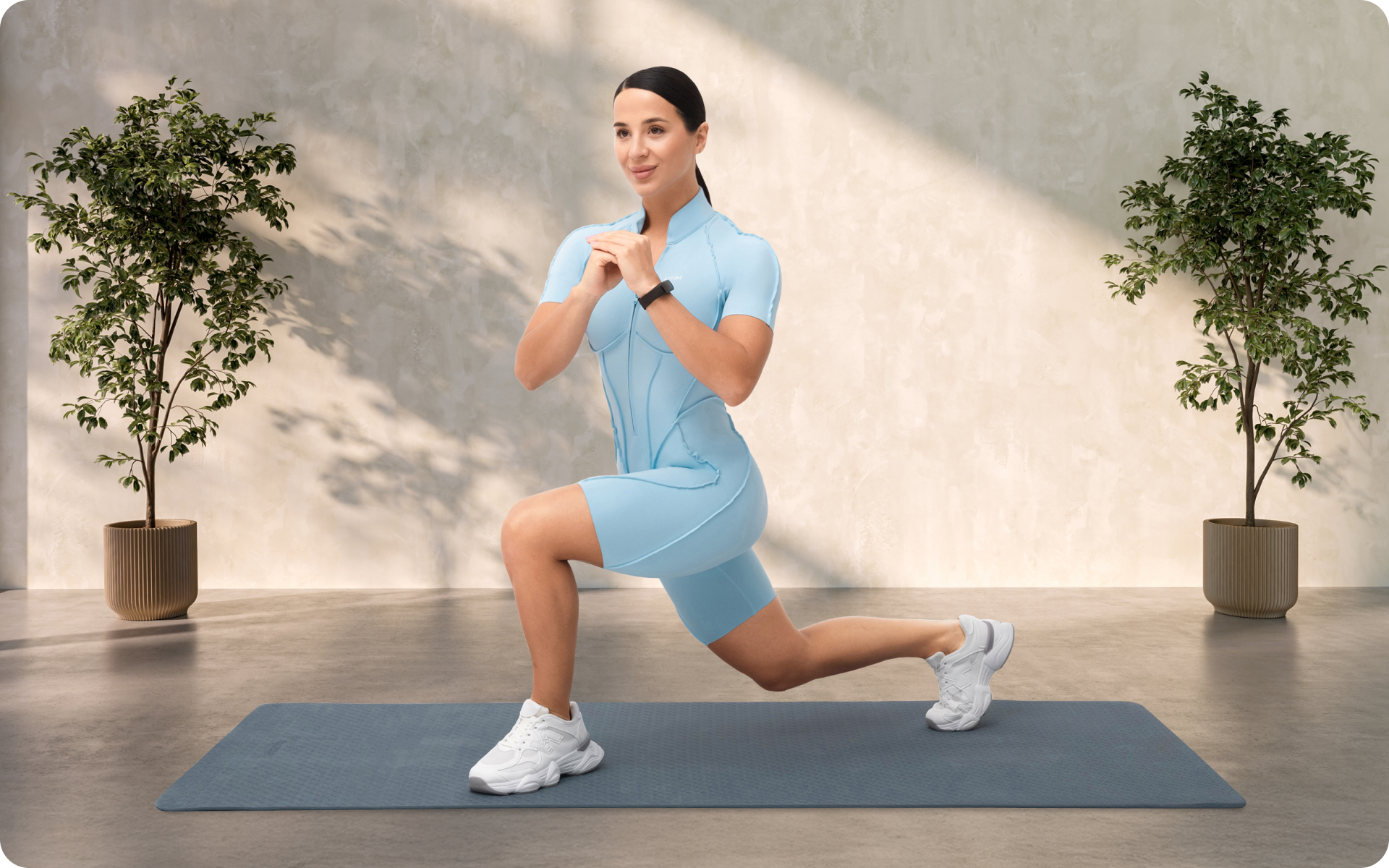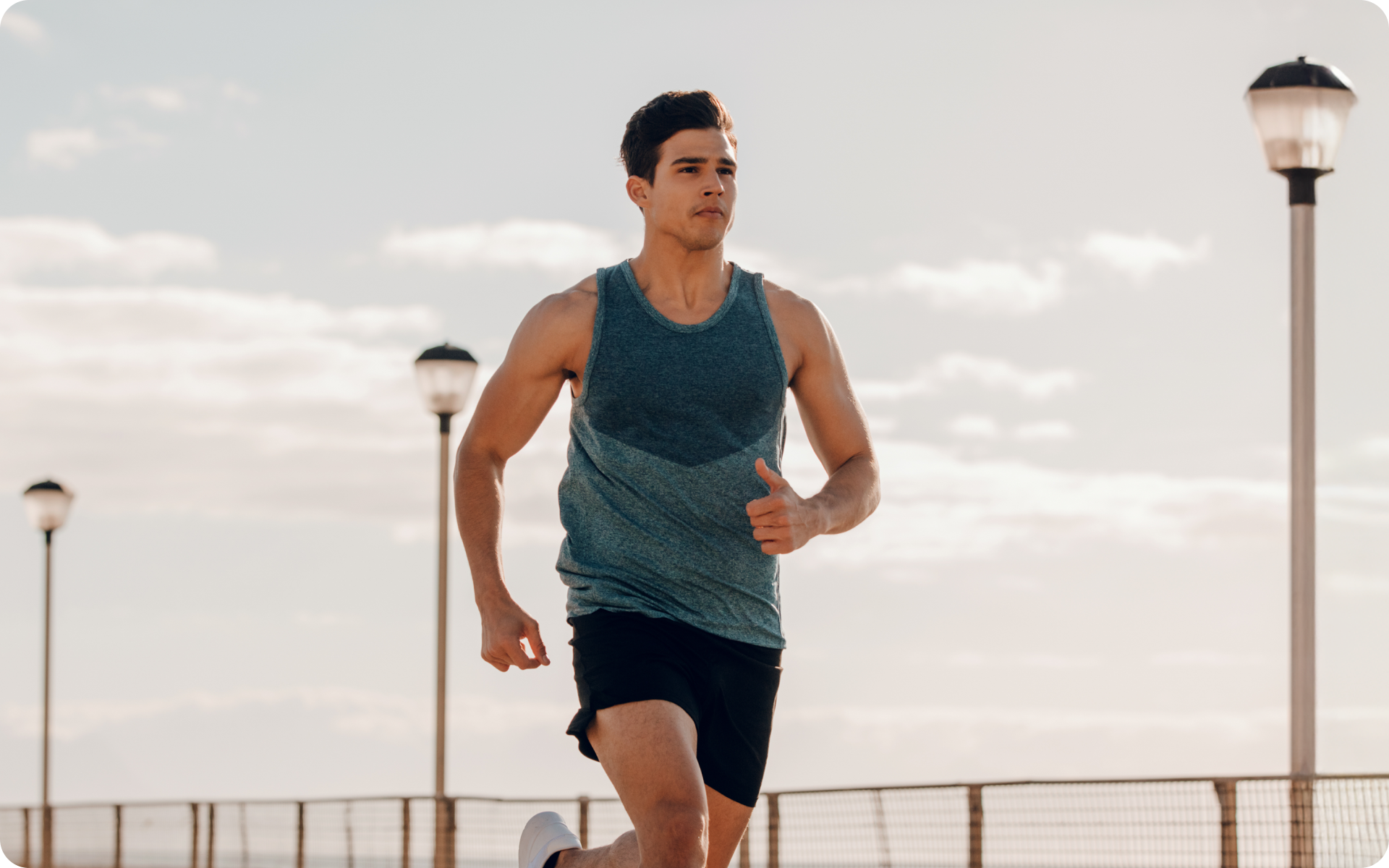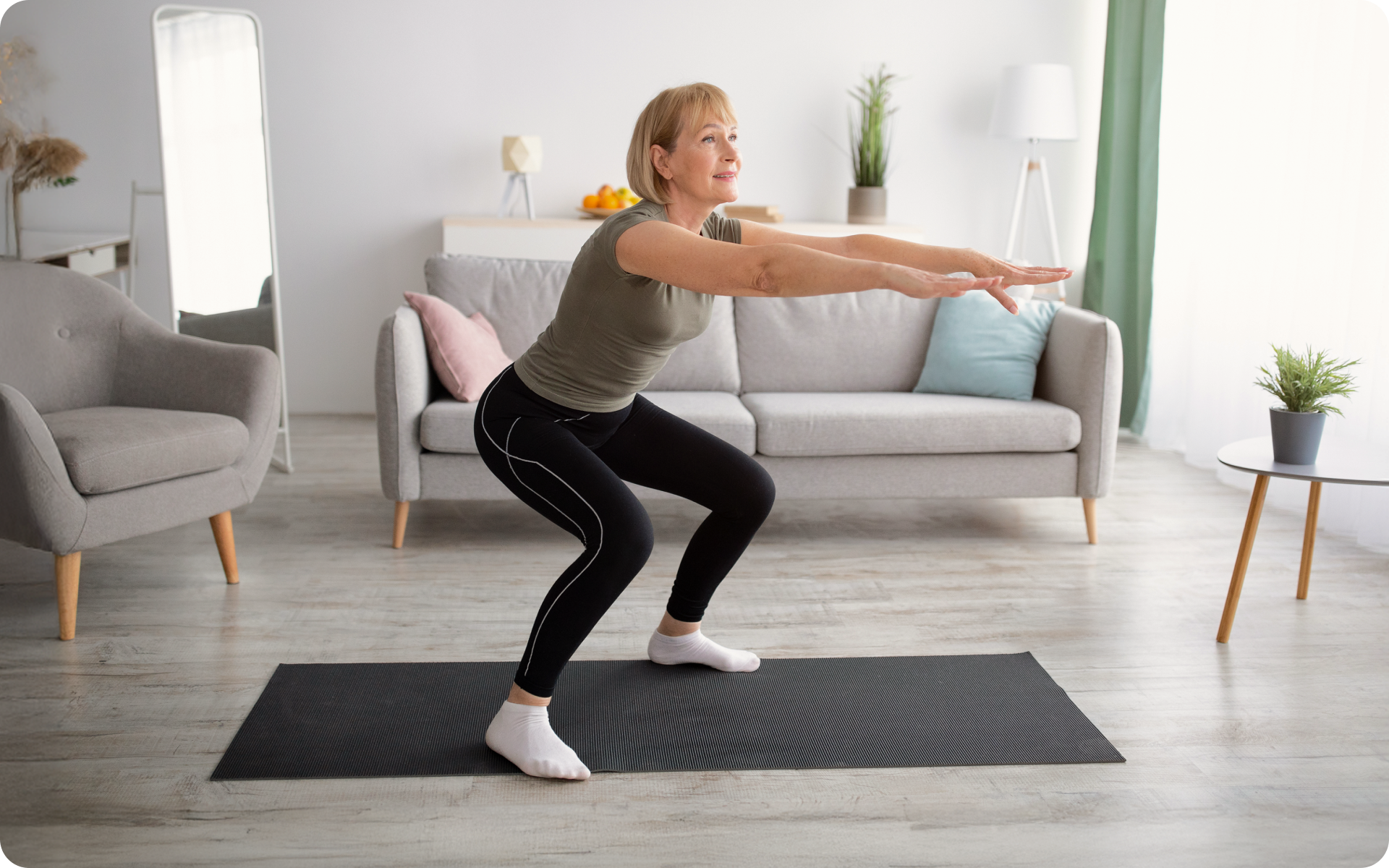In a world of unrealistic beauty standards, the quest for slim, muscular legs may appear meaningless. People may even judge you if you ever talk about your thighs being overly strong. However, you should always aim for your fitness goals, regardless of what people assume about you.
Although fitness experts often disregard targeted exercises, people keep looking for ways to tone different parts of their bodies. You can easily find exercises that focus on building your leg strength. Instead of asking how to slim muscular legs, you should inquire about ways to make your legs lean and strong.
You need a structured plan to make your legs slimmer. A physique with skinny legs and a big upper body may not be the goal of many people. Below, we explore some facts about slim legs and many ways to achieve them.
Happy reading!
Can You Slim Down Muscular Legs?
Yes, you can slim down muscular legs with a combination of methods. However, you must first understand that this may take some time. Don’t be too hard on yourself and stick to a nutrition plan that doesn’t wear you out. A little patience and a lot of consistency will help you achieve the desired results.
It’s normal to have a little body fat. The fat is evenly distributed across the body, but some parts of our bodies are prone to accumulate more fat than others. Generally, leg fat is comprised of two kinds of fats:
- Intramuscular Fat: This fat is spread out inside the muscle, a little bit like the fat lines you see in meat.
- Subcutaneous Fat: This is commonly found in the thighs and is right under the skin.
The majority of leg fat is subcutaneous, which means that it doesn’t cause much harm (3). The following tips may come in handy if you’re wondering how to slim muscular legs:
Perform Aerobic Exercises
Aerobic exercises are one of the best ways to optimize your fitness. The Centers for Disease Control (CDC) recommends performing approximately 150 minutes of moderate-intensity aerobic activities every week. You can choose to swim, walk, or cycle. Make sure that you choose an activity that doesn’t take a toll on your physical health.
Indoor cycling is a low-impact aerobic workout that has gained popularity in recent years. It can help with calorie burning and promotes overall weight management. In a study from 2010, it was found that overweight women who weren’t very active lost weight and fat after 24 indoor cycling sessions (10).
Cycling primarily targets the muscles in the lower body, which include the quadriceps and hamstrings. When you pedal against the resistance, this builds your muscular strength and contributes to toning the entire body. Continuous cycling can build cardiovascular endurance, which is a major factor in improved health.
Opt for Strength Training
The Department of Health and Human Services advises that a person should perform a combination of aerobics and strength training exercises to get the biggest rewards (7).
Strength training includes exercises against resistance that could help improve your muscular size, strength, and endurance. You can use resistance bands or dumbbells for this. Strength training can improve lean body mass and help reduce body fat. The American College of Sports Medicine suggests doing 8 to 10 exercises that work multiple muscles at the same time, such as squats or lunges, two or three times a week (1). These exercises help burn more calories and can help you lose weight.
Reasons why BetterMe is a safe bet: a wide range of calorie-blasting workouts, finger-licking recipes, 24/7 support, challenges that’ll keep you on your best game, and that just scratches the surface! Start using our app and watch the magic happen.
Implement Dietary Changes
There’s no magic meal plan that can cut all the fat from your legs. As with every fitness plan, you need a dietary plan that can give a comprehensive boost to your health. A person tends to lose more weight if they consume fewer calories than they burn. Healthy foods, such as fruits and vegetables, tend to have fewer calories.
The National Institute of Health (NIH) recommends including foods such as(2):
- Whole grains such as whole-wheat bread and brown rice
- Healthy fats such as olive oil and nuts
- Various fruits and vegetables
- Proteins from beans, soy, eggs, and lean meat
Eating high-fiber foods can help with weight loss as they make you feel fuller for longer. Many people who want to lose weight go for low-carb diets that emphasize foods with fewer carbs and are enriched with proteins and healthy fats.
Start Doing Pilates
Pilates is the kind of exercise that focuses on strengthening the muscles in the body. It can improve your posture and flexibility, and ultimately help you shed unwanted fat.
Thigh fat is a common problem among many people who want to get fitter. A well-rounded exercise plan that also includes Pilates can help you burn calories and catalyze the weight loss process.
Check out a couple of Pilates moves you can include in your routine:
Legs Straight Up and Down
- Point your toes and lift your leg upward.
- Lower the leg gradually while keeping the toes pointed.
- This action engages all the lower body muscles, including the calves.
Inner Thigh Lift
- Lie down with your knees bent and feet flat on the ground.
- Raise and lower one leg at a time while keeping the other foot on the ground.
- Repeat this movement 10 times for each leg.
Kick Front and Back
- Extend your leg forward with pointed toes.
- Exhale as you kick the leg forward as if kicking a ball.
- Pull the leg backward as far as possible, kicking twice with your heel.
- Repeat this forward-backward movement 10-15 times per leg.
These are some Pilates moves that can help you get leaner legs. You can tone your thighs by including these moves in your regular exercise plan. If you’re a beginner in the Pilates world, you should seek help from a certified trainer.
Try to Reduce Stress Levels
Stress can cause many health problems such as overeating and weight gain (11). In a study from 2017, it was found that people who were more stressed at the beginning gained more weight over 6 months compared to those who were less stressed (9). Finding ways to relax such as meditation and deep breathing can help to combat this issue.
Improve Your Sleep Patterns
Not getting enough sleep can be the reason why you aren’t losing weight. Sleep regulates our hormones, including those that trigger hunger. The hormones ghrelin and leptin help to regulate our appetite and they are affected by the lack of sleep.
Getting ample sleep can help regulate these hormones. The Centers for Disease Control advises sleeping 7-9 hours per night (5).
It’s not possible to lose weight from a single area of your body. When you successfully reduce your weight, you will lose extra fat from your whole body. Everyone who wants to get slim legs and muscular arms should use a combination of these exercises so they can reach their targets faster.
Read more: Fire Up Your Muscles With Effective Resistance Bands Leg Workout
Why Are My Legs Naturally Muscular?
Leg fat is the excess skin and weight that accumulates on the legs around this muscle. Some people may find themselves with thicker legs than others due to a combination of their musculature and accumulated fat. And many of them want to cut this fat as much as possible so they can get leaner structure and improve their movements.
The following could be why your legs are naturally muscular:
Genetics
Genetics plays an important role in determining your muscle shape and size. Some people are genetically predisposed to have more muscular legs than others.
Body Composition
Your body composition can also impact the way your legs appear. Body fat and muscle mass can influence whether your legs look thick or lean. If you have lower body fat and higher muscle mass, your legs are likely to appear more muscular.
Hormonal Factors
Hormones such as growth hormone and testosterone play an important role in muscle development. A high level of these hormones can increase muscle mass throughout your body, including your legs.
Physical Activity
Our physical activities also determine how our legs appear. Typically, athletes and people who indulge in regular physical activities tend to have lower body fat and a higher muscle mass. Those who look up how to slim muscular legs by walking find themselves curating a workout routine that gradually progresses.
It’s okay to have muscular legs. As long as your legs move well and look good, you don’t need to feel insecure about having thick legs. It’s good to work on your fitness and have slim legs. Start by evaluating why you have thick legs in the first place.
People often ask why my muscles tighten or cramp up when they sleep. You should know that this generally happens due to dehydration, lack of physical activities, and underlying medical conditions. It’s essential to seek help from a general physician or a trainer who could help you with a routine. You can then opt for easy exercises and gradually increase the intensity of your workouts.
Are Bulky Legs Genetic?
It has been noted that Asians have bulkier legs than other people. Several factors could be held responsible for this difference. Genetics is one of the primary reasons why Asians have heavier calves.
Research has found that our genes are incredibly important in deciding how big and shaped our muscles, including our calves, are (4). Some Asians have genes that are passed down through families that make their calf muscles bigger than those of other races. This special genetic gift is often seen in many Asian families, which makes big calves more common among them.
Body shape is another cause for bulkier legs. Asians are prone to have a body shape that contributes to a larger calf size. They generally have shorter legs and a smaller frame than people from other regions. This means that their calf muscles occupy a larger proportion than the rest of their legs.
Blaming bulky legs on your genes and body composition is biased. You need to look at the bigger picture to understand the shape of your legs and find ways to hit the target you’ve always had in your mind. Lifestyle and dietary patterns also impact how we look and feel. People who lead a sedentary lifestyle are likely to have more fat in their thighs.
It doesn’t matter if you’re figuring out how to slim muscular legs for male or female. You should craft a comprehensive plan that helps to carve your legs the way you want while ensuring that your entire body stays fit and balanced.
BetterMe app will provide you with a host of fat-frying fitness routines that’ll scare the extra pounds away and turn your body into a masterpiece! Get your life moving in the right direction with BetterMe!
How Long Does it Take to Slim Legs?
This is a common question among people who want to reduce fat from a certain part of their bodies. If you’ve recently started working on your legs and want to know an exact timeline for fat reduction, you should be aware of some factors.
Start with a basic understanding of fat loss and caloric balance. According to the Mayo Clinic, people who want to lose one pound of fat should achieve a calorie deficit of 3,500 calories (12). The more calories you burn over time, as in a day, week, or month, the faster you’ll see changes in your legs, as well as your entire body. While you may want to focus only on slimming your thighs, it’s important to know that targeting fat loss in just one area isn’t always possible. Overall, you should focus on an energy deficit of 500-1,000 calories per day using a combination of calories burned from exercise and calorie deficit from reduced food portions.
But wait, we have good news for you!
You can see small results within two or four weeks after you start a workout. You may feel that you have better stamina and your legs look more defined. At the end of the day, it depends on your fitness level. If you’re active and consistent with your workouts, you’ll see significant results in three to four months.
Slight progress toward fitness goals can be a huge motivation for those who want to cut fat from their bodies. Every week, do two workouts to strengthen your legs (6). In one workout, focus on exercises for your glutes and hamstrings, and in the other, focus on exercises for your quadriceps and calves. Make sure you space these workouts three days apart in your schedule.
Will Running Slim My Legs?
Running is one of the traditional ways to lose weight. It’s an exercise that doesn’t require any equipment or special training and can be done anywhere.
If you’re doubtful whether running will help you lose leg fat, let us tell you that it can. As with every exercise, there’s a catch when you want to lose weight by running. It won’t slim your legs unless you add a healthy diet and lifestyle to your routine. A balanced diet can help you burn fat more effectively from your entire body, including your legs.
To get slimmer legs with running specifically, you should focus on performing hill sprints or interval training. These are the exercises that can increase the intensity of your exercise by switching between high-intensity bursts of speed and lower-intensity recovery periods (8). This kind of exercise exerts more strain on the legs than regular jogging. This can gradually sculpt your legs if you follow a structured plan with consistency.
Read more: A Leg Workout For Mass To Make Your Leg Day Count
FAQs
Does walking lose muscle?
Walking at a steady pace is considered to be one of the best forms of exercise. It can help you lose fat and maintain your muscle mass while also improving your mental fitness.
This can help preserve and build muscle mass, improve strength, and enhance overall body composition.
Can fat turn into muscle?
No, fat may not turn into muscle as they are two different kinds of tissues with distinct structures and functions in the body. Fat tissue, which is also known as adipose tissue, stores energy in the form of triglycerides, while muscle tissue is composed of muscle fibers that contract to move.
Do you lose muscle or fat first?
When you’re in a calorie deficit, your body will typically prioritize burning stored carbohydrates (glycogen) for energy first. Once those glycogen stores are depleted, your body will turn to fat stores for energy. However, if the calorie deficit is too severe or if you’re not consuming enough protein, your body may break down muscle tissue for energy alongside fat.
The Bottom Line
Our calves and legs tend to accumulate fat over time. You must watch all the factors that are causing this growth and then find ways to control them. Cardiovascular activities such as running and walking are your best friends if you want to get your body in shape. They may be a little difficult at first if you struggle with consistency and strength. However, once you devise a schedule and implement it, you can start to see positive results within 3 to 4 months.
I’d advise you not to fret about how to slim muscular legs. Rather, you should learn how to maintain a solid fitness routine that could help you make sustainable progress toward your health and wellness objectives.
DISCLAIMER:
This article is intended for general informational purposes only and does not serve to address individual circumstances. It is not a substitute for professional advice or help and should not be relied on for making any kind of decision-making. Any action taken as a direct or indirect result of the information in this article is entirely at your own risk and is your sole responsibility.
BetterMe, its content staff, and its medical advisors accept no responsibility for inaccuracies, errors, misstatements, inconsistencies, or omissions and specifically disclaim any liability, loss or risk, personal, professional or otherwise, which may be incurred as a consequence, directly or indirectly, of the use and/or application of any content.
You should always seek the advice of your physician or other qualified health provider with any questions you may have regarding a medical condition or your specific situation. Never disregard professional medical advice or delay seeking it because of BetterMe content. If you suspect or think you may have a medical emergency, call your doctor.
SOURCES:
- ACSM Guidelines for Strength Training | Featured Download (2019, acsm.org)
- Eating & Physical Activity to Lose or Maintain Weight (2023, niddk.nih.gov)
- Fatter legs linked to reduced risk of high blood pressure (2020, sciencedaily.com)
- Genes and the ageing muscle: a review on genetic association studies (2013, ncbi.nlm.nih.gov)
- How Much Sleep Do I Need? (2022, cdc.gov)
- Jump, squat, repeat! Lose weight and tone your legs at the same time with box squats (n.d., healthshots.com)
- Physical Activity Guidelines for Americans (2019, health.gov)
- Sprint Interval Training: How to Burn Fat and Increase Speed (2023, healthline.com)
- Stress, cortisol, and other appetite-related hormones: Prospective prediction of 6-month changes in food cravings and weight (2017, onlinelibrary.wiley.com)
- The effects of indoor cycling training in sedentary overweight women (2010, pubmed.ncbi.nlm.nih.gov)
- Why stress happens and how to manage it (2023, medicalnewstoday.com)
- Weight loss (2023, mayoclinic.org)










